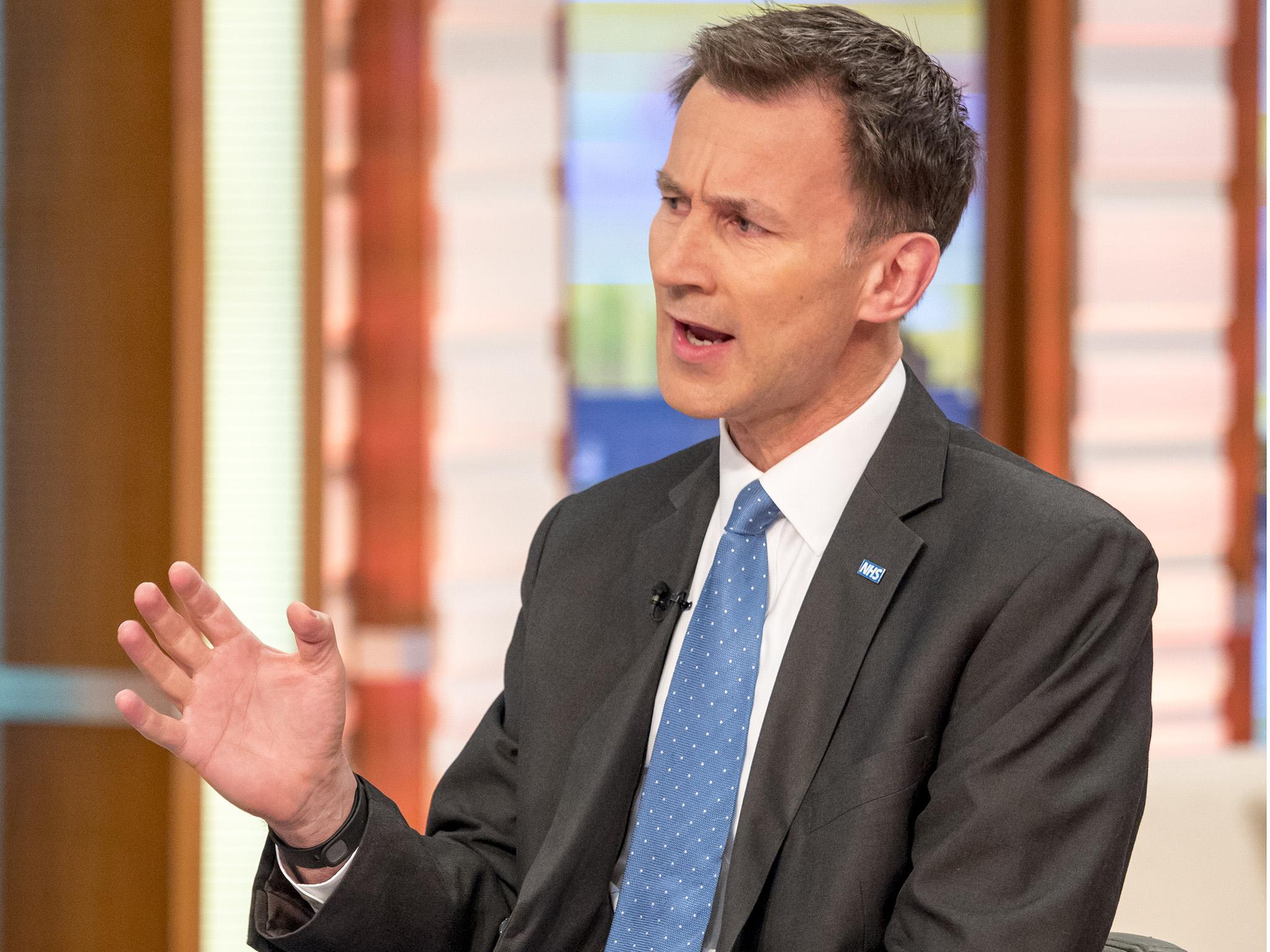Conservatives must be clear about their vision for the future of the NHS
In an interview on the BBC’s Today programme Jeremy Hunt’s fundamental response to questions about Conservative policy was to suggest that a good Brexit deal will make for a better NHS

Britain’s impending visit to the polls has been firmly cast as the Brexit election. That the UK’s withdrawal from the EU should be the primary issue of the campaign suits at least three of the five main parties – the Conservatives, Lib Dems and Ukip. The SNP can tie it in with the Scottish independence question. Only for Labour is Brexit notably problematic since it neither unites the parliamentary party nor its potential support base. No wonder then that Labour would rather move the conversation on. Fat chance.
In truth though, there are a great many policy areas which deserve politicians’ attention and exposition. After all, whichever government we end up with in June will have more than Brexit on its plate. The electorate will be hard pressed to make a fully informed decision at the ballot box if the parties don’t set out fully their positions on key non-Brexit questions.
Health is perhaps the most notable of these and yet Jeremy Hunt, the Health Secretary, appears intent on avoiding any concrete statements about the Government’s record on, or specific intentions for the future of, the NHS. In an interview on the BBC’s Today programme his fundamental response to questions about Conservative policy was to suggest that a good Brexit deal will make for a better NHS. That is a facile way to approach the subject and makes a mockery of voters’ hopes for improved health services.
Plainly the NHS is under serious strain. That has been evident this winter at A&E departments across the country where images of patients waiting on ambulance gurneys have become all too common. It is evident too in the increased pressure on GPs, general hospitals and even the police as they deal with the fallout caused by inadequate mental health provision. Failings in social care services have had similar knock-on effects and have left too many ill and vulnerable people without the attention they need.
For frontline healthcare staff, the pressures are obvious. In 2016, 59 per cent reported working unpaid overtime each week. Many are on relatively modest salaries and it is a testament to their vocational dedication that the NHS functions as effectively as it does. For seven years 1.3 million staff have seen their pay frozen or limited to annual rises of 1 per cent. The costs of the NHS must by economic necessity be kept in check – but when it comes to pay, wages are falling behind inflation to a degree which is unsustainable.
The ending of bursaries for nursing and midwifery students this year was intended to free up funding for the creation of additional roles in the professions. But there is grave concern that the prospect of leaving university with significant debt is making potential nurses think twice about embarking on their careers – applications have fallen by a quarter. Meanwhile, applications for nursing positions from EU nationals fell by 90 per cent between July and December last year and in March there were 24,000 unfilled vacancies across England.
These are only a few of the challenges facing the NHS but as yet we have heard far too little, especially from the Conservatives, about how they might be tackled. Likewise, the fundamental question of private contractors bidding to run various NHS services is worthy of considered debate and should not be left at the mercy of ambiguous platitudes.
No party has a magical cure for the NHS’s every ill. But as Britain’s population grows and ages, healthcare is a top priority for the large majority of voters. The parties must be clear about their vision for the future health of the nation.
Join our commenting forum
Join thought-provoking conversations, follow other Independent readers and see their replies
Comments
Bookmark popover
Removed from bookmarks